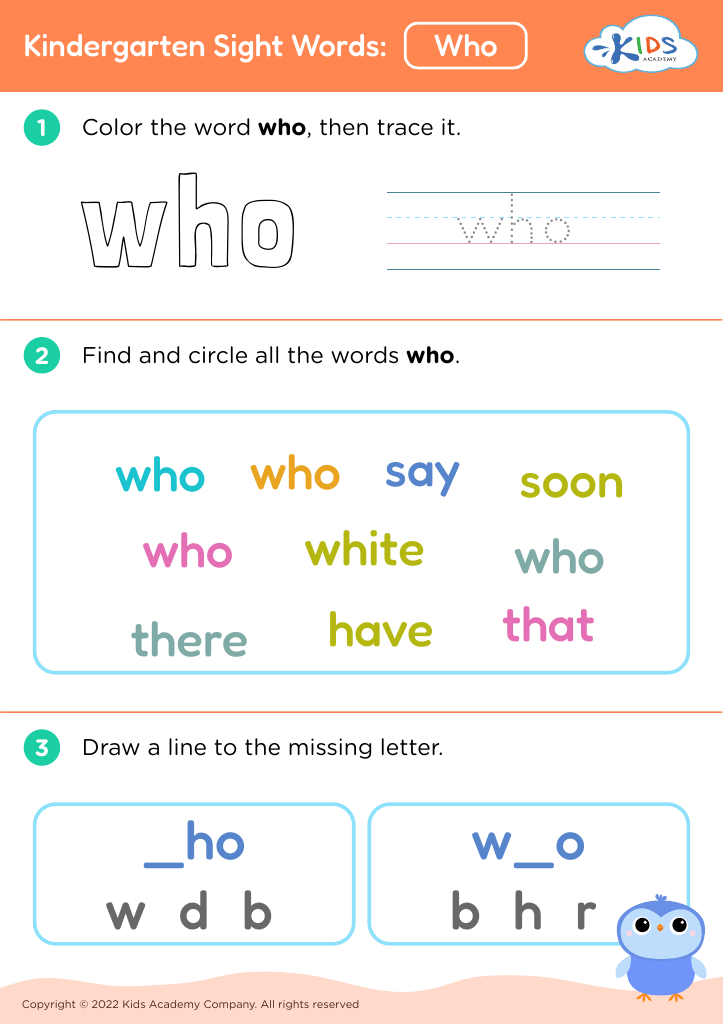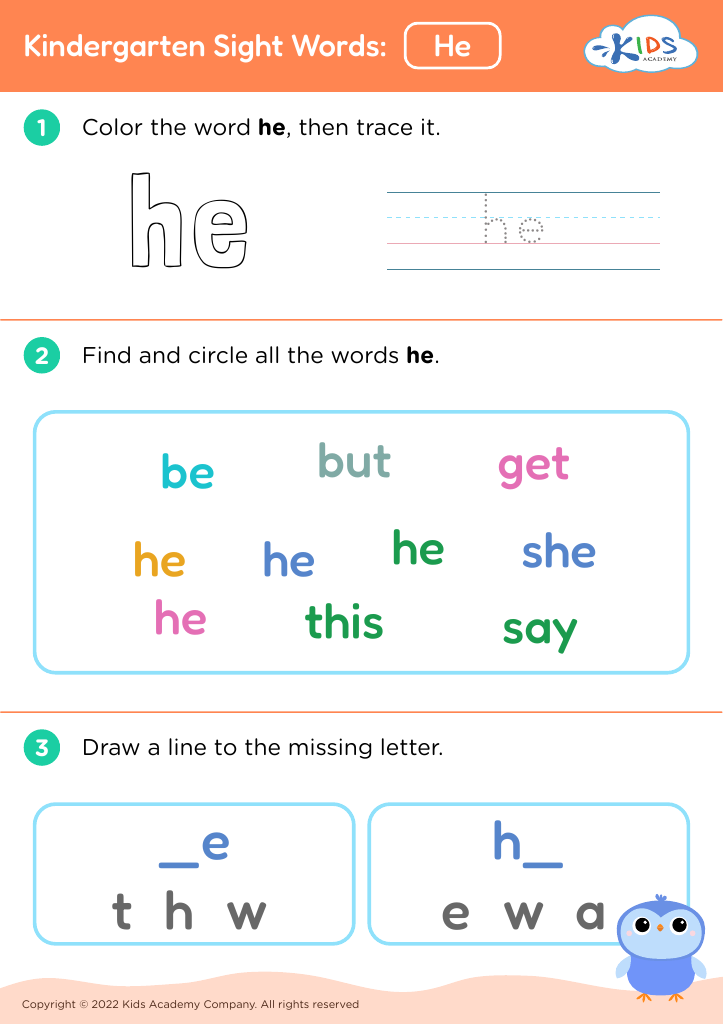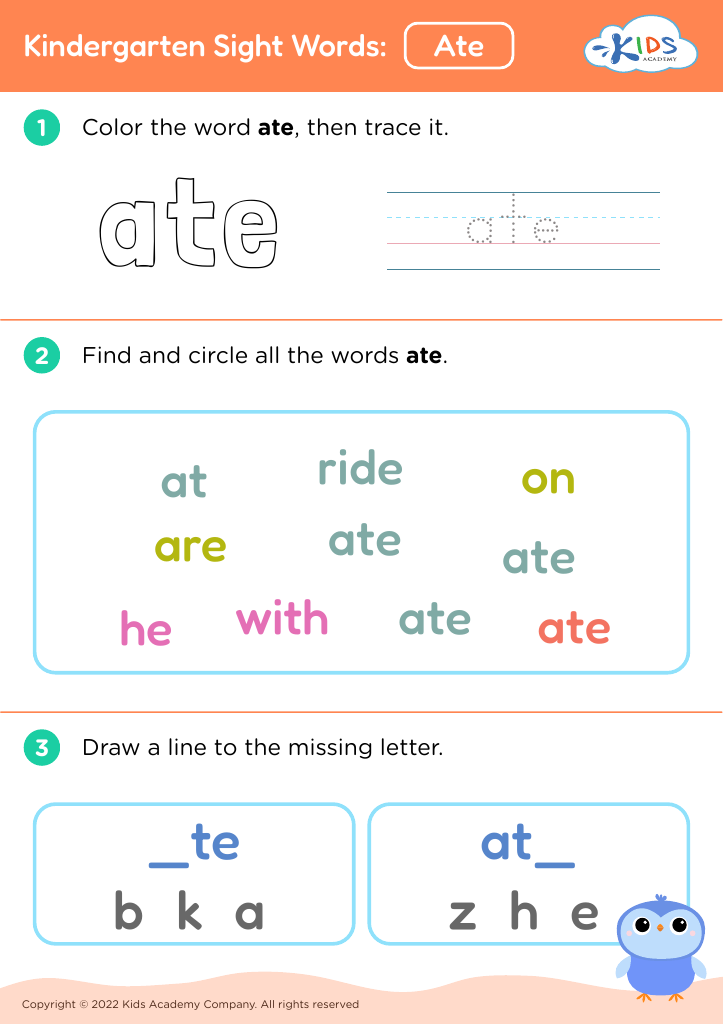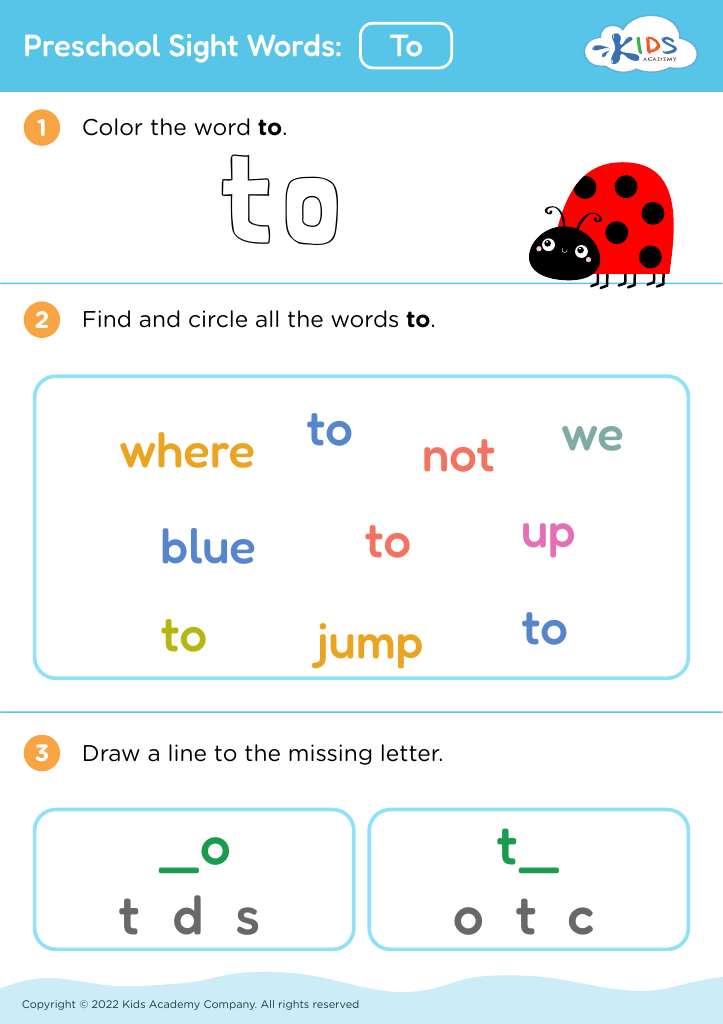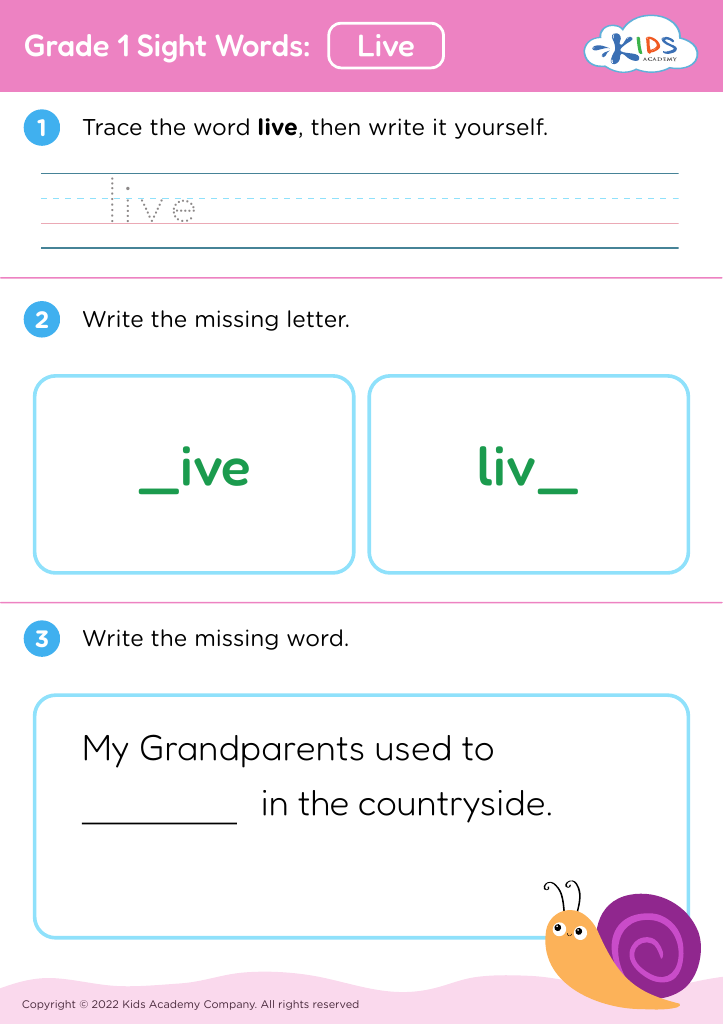Improve reading skills Reading Worksheets for Ages 4-6
10 filtered results
-
From - To
Boost your child's reading abilities with our engaging reading worksheets designed specifically for ages 4-6. These interactive resources help develop essential skills such as phonemic awareness, vocabulary, and comprehension through fun activities. Each worksheet is crafted to make learning enjoyable while reinforcing key concepts at an age-appropriate level. Parents and teachers can easily access a variety of templates to support guided reading sessions or independent practice. Watch as your child gains confidence and a love for reading, setting a strong foundation for their educational journey. Explore our worksheets today and help your little ones become enthusiastic readers!
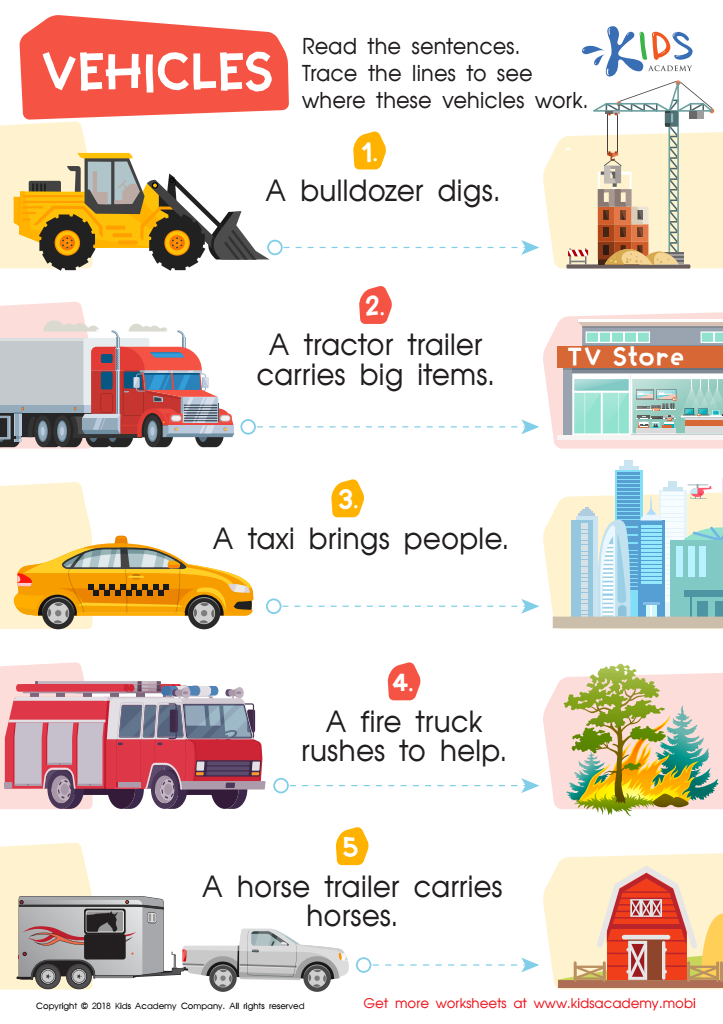

Vehicles Worksheet
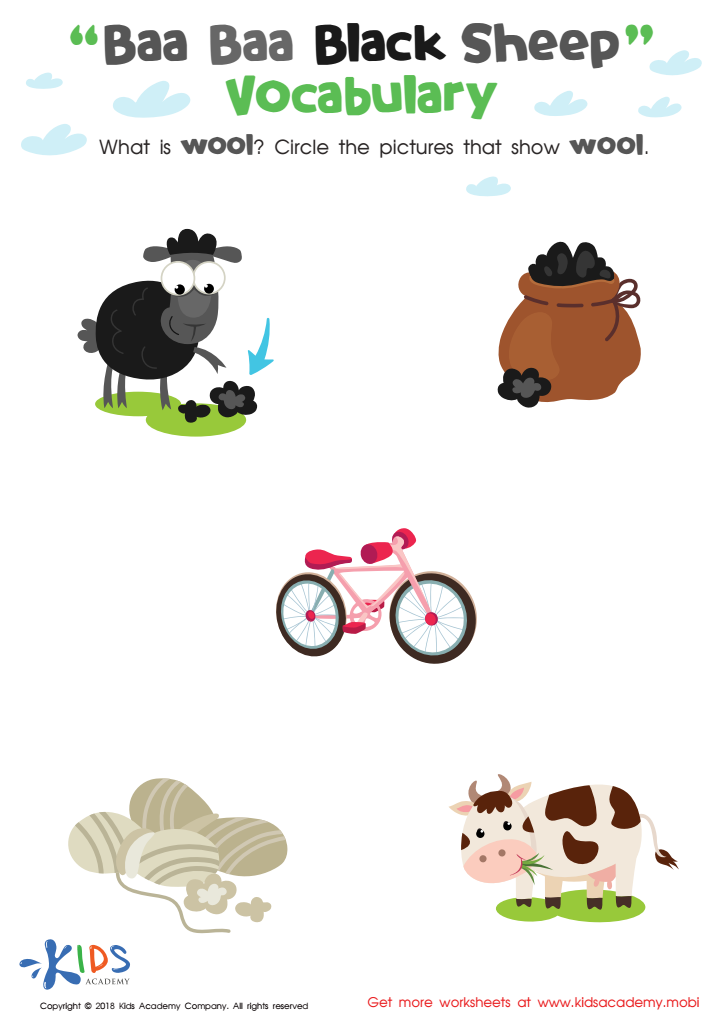

Baa Baa Black Sheep: Vocabulary Worksheet
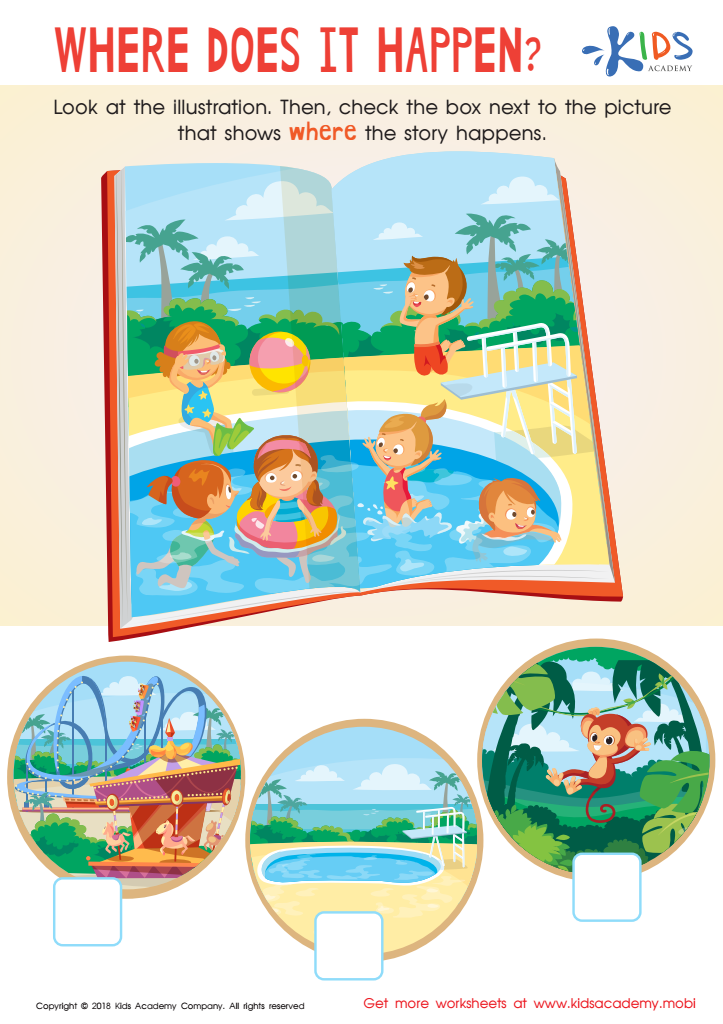

Where Does It Happen? Worksheet
Improving reading skills in children aged 4-6 is crucial for their overall development and future academic success. During these formative years, children are highly receptive to language and literacy experiences, laying the foundation for effective communication and critical thinking skills. When parents and teachers prioritize reading, they help instill a lifelong love of learning, engaging children’s imaginations and promoting creativity.
Reading at a young age supports cognitive growth, vocabulary acquisition, and comprehension skills. These early experiences not only improve children’s ability to decode and understand text but also enhance their social and emotional development by fostering empathy through stories. Moreover, strong reading skills are linked to improved performance in other subjects, making it essential for academic achievement throughout their schooling.
Participating in reading activities together creates valuable bonding opportunities between parents, teachers, and children, fostering a collaborative learning environment. Additionally, cultivating good reading habits can help prevent future literacy struggles and gaps in knowledge, equipping children with essential tools for success in an increasingly complex world. Thus, it’s vital for both parents and teachers to embrace strategies that promote reading enjoyment and skills during this critical developmental stage.

 Assign to My Students
Assign to My Students


